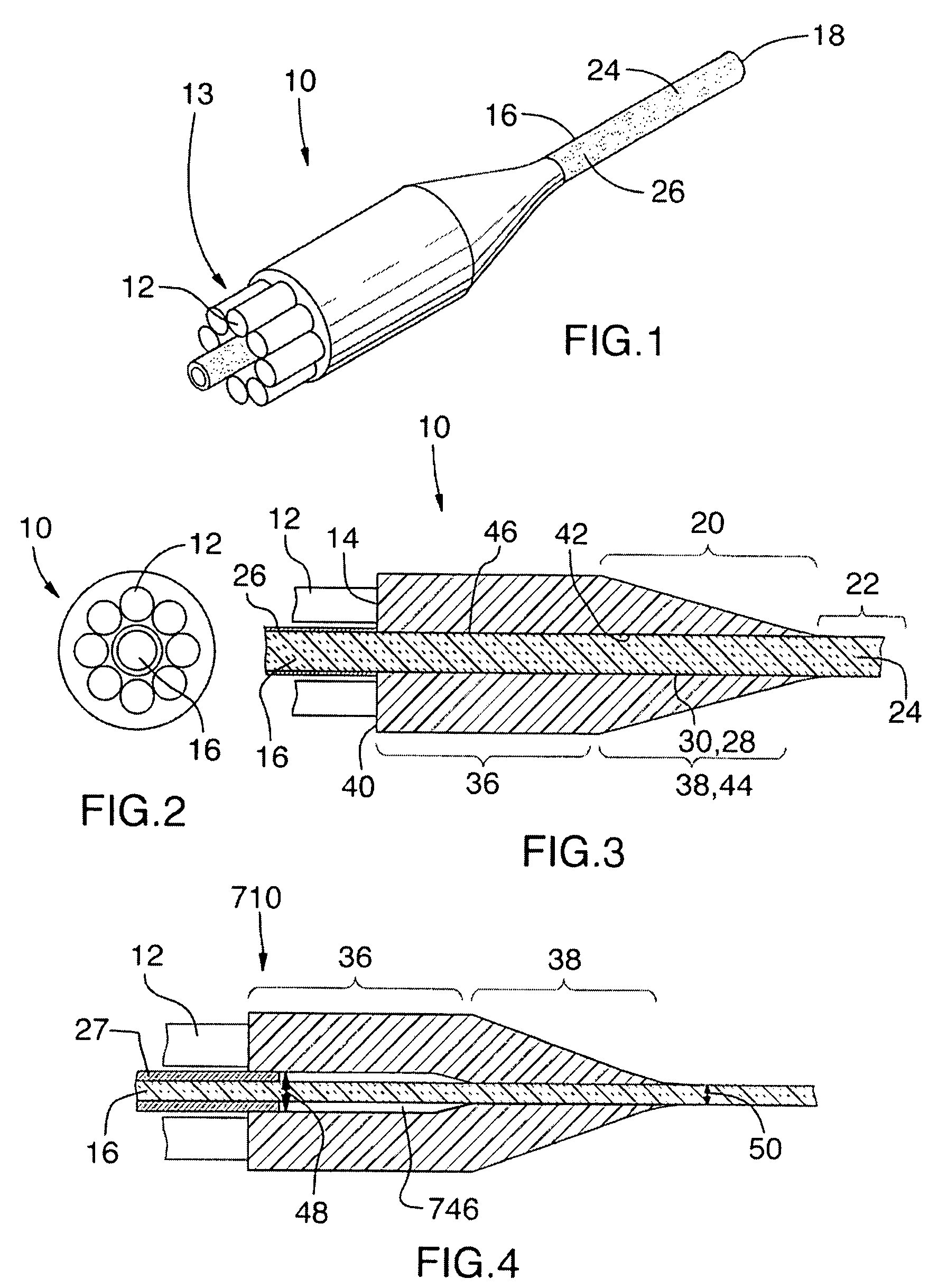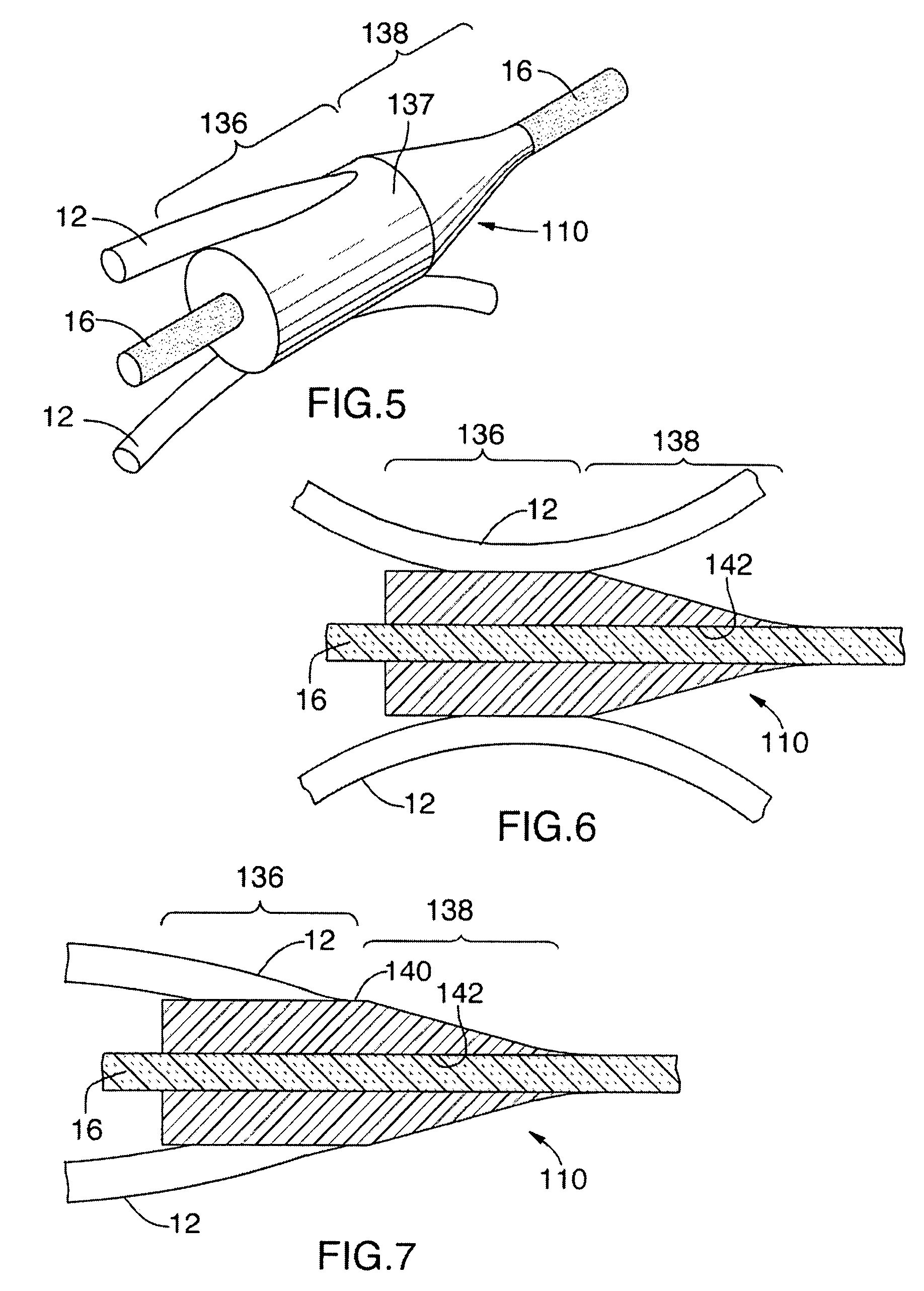Method and device for optically coupling optical fibres
a technology of optical coupling and optical fiber, which is applied in the field of optical fibers, can solve the problems of power loss, failure of optical amplifier, and relatively difficult performance of manufacturing optical amplifiers and other devices in which optical fibers are optically coupled to each other, and achieves the effects of convenient assembling, efficient transmission of power, and easy optimization of relationships
- Summary
- Abstract
- Description
- Claims
- Application Information
AI Technical Summary
Benefits of technology
Problems solved by technology
Method used
Image
Examples
Embodiment Construction
[0047]FIGS. 1 to 3 illustrate an optical coupler 10 in accordance with an embodiment of the present invention. The optical coupler 10 is usable for optically coupling a first optical fiber 12 to a second optical fiber 16. In some embodiments of the invention, as seen in FIGS. 1 to 3, more than one optical fiber 12 are optically coupled to the second optical fiber 16. For example, these other optical fibers take the form of a bundle of optical fibers 13. In summary, the optical coupler 10 is manufacturable such that it includes a surface for coupling to the second optical fiber 16 in a substantially radial direction. The surface is formed so as to have a shape that substantially conforms to the outer surface of the second optical fiber 16.
[0048]The optical coupler 10 is configured and has optical properties such that essentially all the light incoming at the first optical fiber 12 is guided into the second optical fiber 16. Typically, this is achieved by adiabatically tapering the op...
PUM
 Login to View More
Login to View More Abstract
Description
Claims
Application Information
 Login to View More
Login to View More - R&D
- Intellectual Property
- Life Sciences
- Materials
- Tech Scout
- Unparalleled Data Quality
- Higher Quality Content
- 60% Fewer Hallucinations
Browse by: Latest US Patents, China's latest patents, Technical Efficacy Thesaurus, Application Domain, Technology Topic, Popular Technical Reports.
© 2025 PatSnap. All rights reserved.Legal|Privacy policy|Modern Slavery Act Transparency Statement|Sitemap|About US| Contact US: help@patsnap.com



